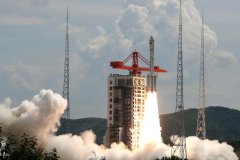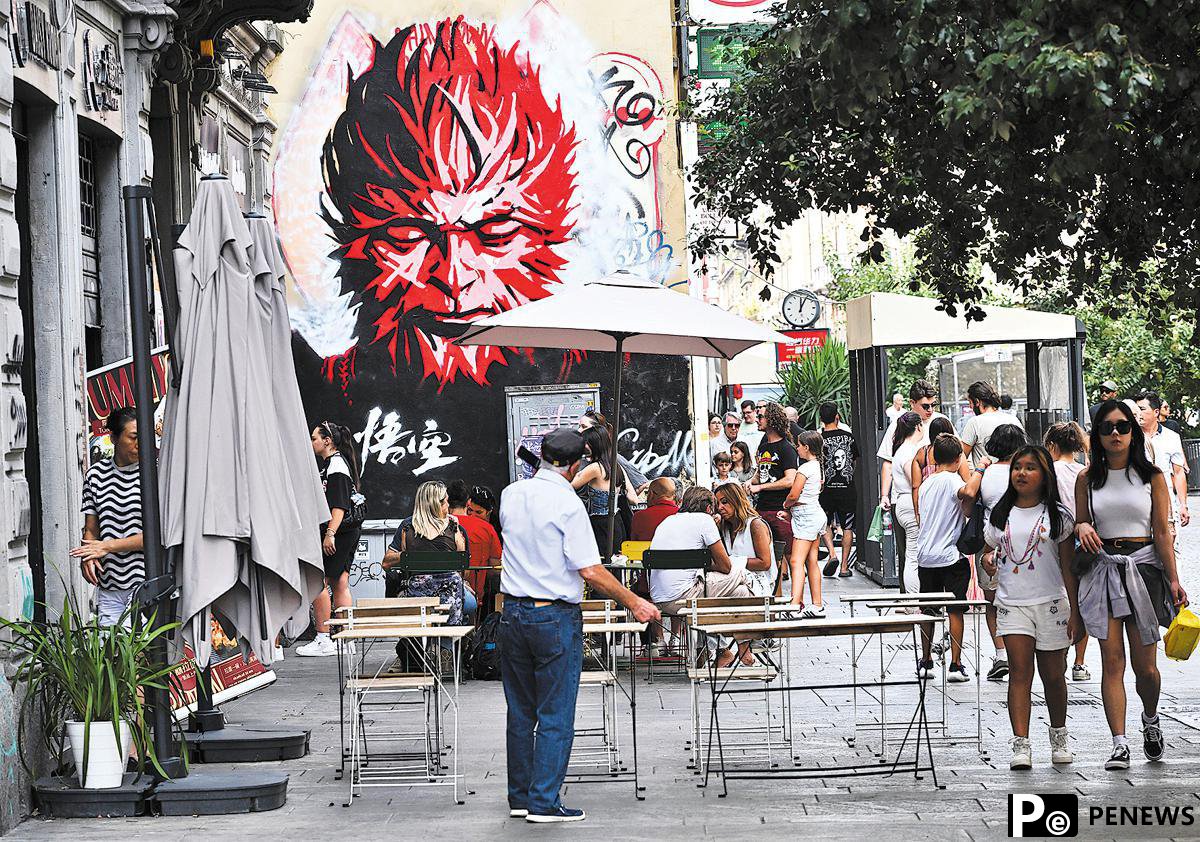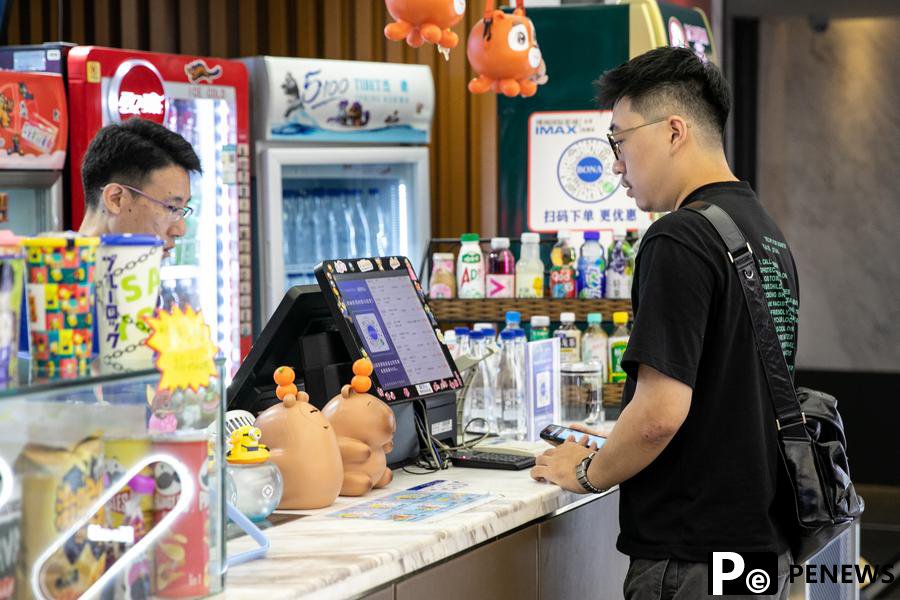Home>>
Combining quality and innovation, China helps fuel Africa's industrialization(Xinhua) 09:17, August 31, 2024
DAR ES SALAAM, Aug. 30 (Xinhua) -- The history of modern economic development reveals that industrialization is essential for achieving modernization. As partners in this regard, China and Africa possess complementary advantages and substantial potential for industrial cooperation.
From infrastructure projects, industrial parks to talent grooming programs, China-Africa cooperation is moving to a higher gear featuring quality and innovation.
These projects funded or undertaken by China in Africa are not only bolstering industrial capacity but also creating jobs and fueling local economies, marking a significant shift across the continent.
INFRASTRUCTURE DEVELOPMENT DRIVES INDUSTRIALIZATION
In Cameroon's South Region, the second phase of the Kribi Deep Seaport, built by the China Harbor Engineering Company (CHEC), is in full swing with nearly a thousand workers on site.
Meanwhile, a 30,000-ton cargo ship from Singapore docked at the berth of the first phase of the seaport, which is already operational.
"In Douala, Cameroon's largest city, the port can only handle ships under 10,000 tons due to shallow waters. But here, docking 100,000-ton ships is not a problem," said local engineer Eric Hermann Defo Fotso.
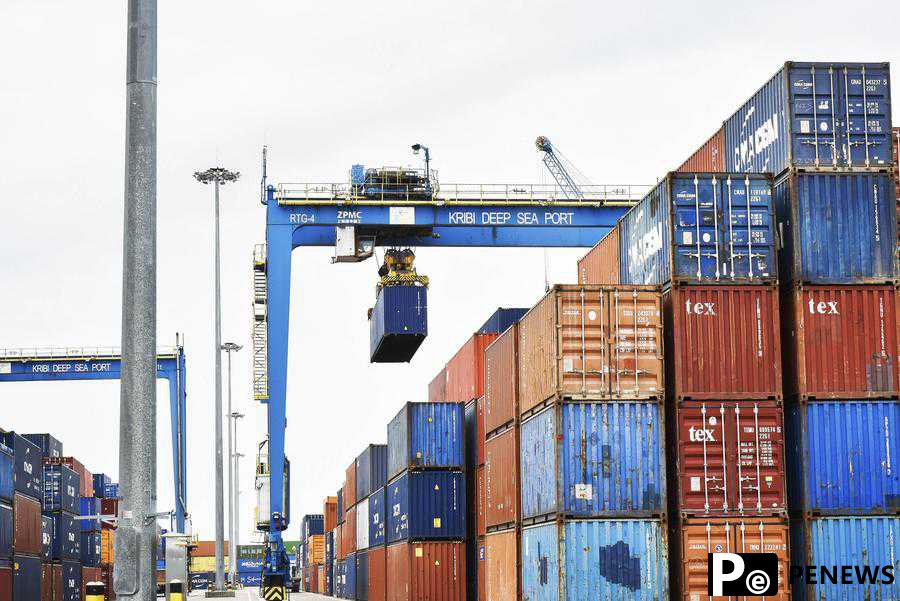
This file photo taken on March 15, 2022 shows cargo containers stored at Kribi Deep Seaport, Kribi, Cameroon. (Photo by Kepseu/Xinhua)
The second phase, expected to be completed by year-end, will add two berths to the existing two in the first phase. In addition, the government has allocated 15,000 hectares near the port for industrial and logistics parks, attracting multiple factories and logistics companies.
The Kribi-Lolabe Highway, built by CHEC, has been operational for nearly two years. Spanning 38.5 km, it includes six two-way lanes, with the central two reserved for future expansion, said Xu Huajiang, general manager of CHEC's Central Africa Division.
"This highway connects the Kribi Deep Seaport with major cities nationwide, facilitating personnel travel and goods transportation, thus promoting Cameroon's industrialization," said Emmanuel Nganou Djoumessi, Cameroon's minister of public works.
Over the past decade, China has built over 6,000 km of railways, 6,000 km of roads, nearly 20 ports, and more than 80 large power facilities in Africa, according to official data.
Under the China-proposed Belt and Road Initiative, China-Africa cooperation in infrastructure has yielded fruitful results, with high-quality projects playing a pivotal role in advancing Africa's industrial development and economic transformation.
"Africa's industrialization started late and has a weak foundation. Only by improving infrastructure, promoting connectivity, and achieving economic integration can Africa conduct large-scale industrial production and effectively integrate the sales market of industrial products," said Costantinos Berhutesfa Costantinos, a professor of public policy at Addis Ababa University in Ethiopia.
CULTIVATING "MADE IN AFRICA" BRANDS
Every day in the morning, Hellen Mugala, 27, joins hundreds of colleagues on their way to work at the Sino-Uganda Mbale Industrial Park, located in Uganda's eastern district of Mbale.
"This industrial park has helped many local people. I have acquired skills and earned a living from the Chinese company," Mugala said.
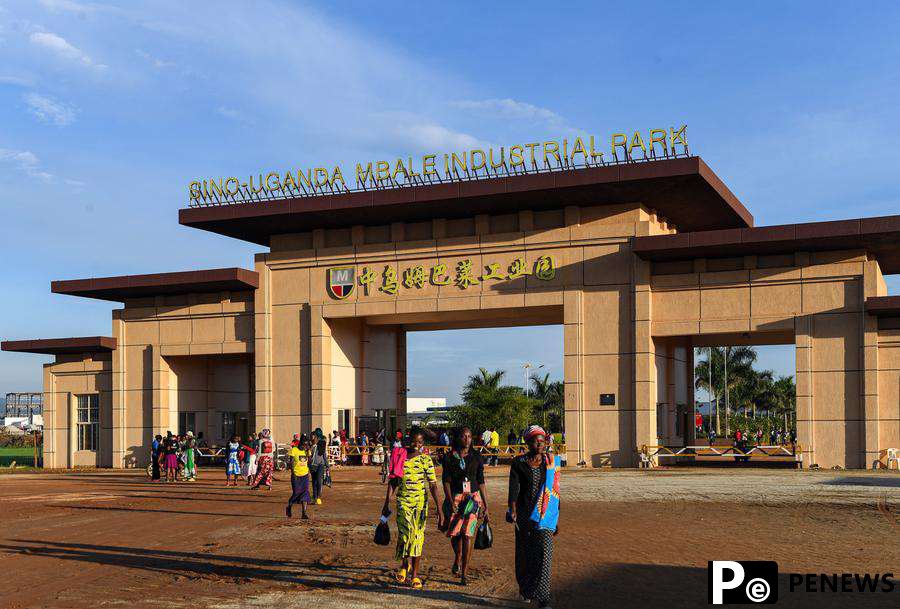
This photo taken on April 4, 2024 shows the entrance to the Sino-Uganda Mbale Industrial Park in Mbale, Uganda. (Xinhua/Li Yahui)
Located about 200 km from Uganda's capital Kampala, the national industrial park benefits from its proximity to three highways. Since its launch in March 2018, the park, invested and operated by the Chinese company Tian Tang Group, has attracted more than 40 companies and created over 5,000 jobs for locals, park authorities have said.
Spanning thousands of hectares, the park encompasses a wide range of sectors, including household appliances, daily beauty products, home fabrics, building materials, medicines, smartphones, televisions and automobiles.
Pearlight Technology Ltd, which manufactures lighting products, was one of the first companies to settle down in the park. By producing affordable LED lamps and offering repair services, the company significantly reduces Uganda's dependence on imported lighting solutions.
"Previously, Uganda's LED lamps were mainly imported, which made them expensive and hard to repair. Chinese enterprises have changed this situation. Now, our company produces about 3 million LED bulbs and tube lights annually, sold across Uganda," said Joseph Otim, a local technician at the company.
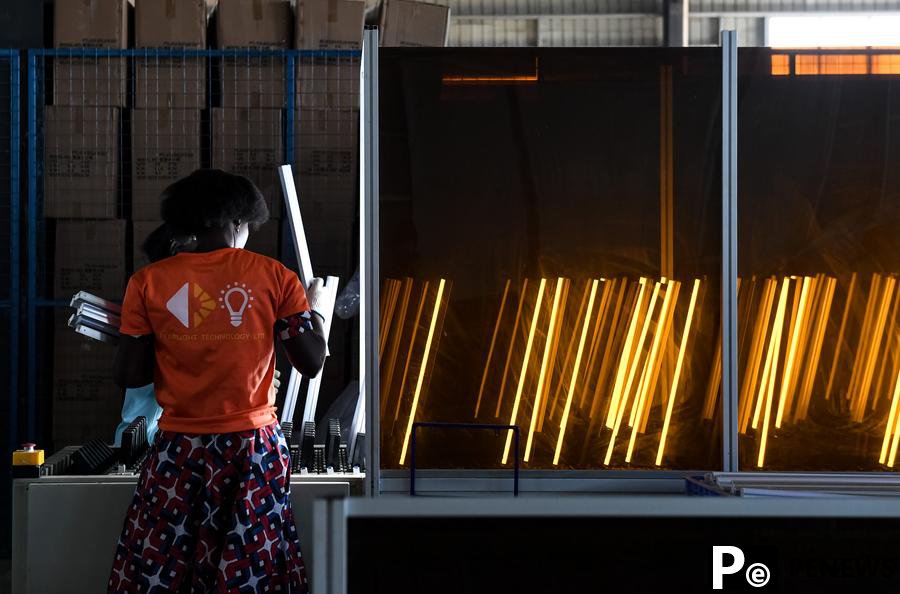
People work at Pearlight Technology Ltd at the Sino-Uganda Mbale Industrial Park in Mbale, Uganda, on April 5, 2024. (Xinhua/Li Yahui)
In recent years, African countries have been drawing on the industrial park development expertise of countries such as China.


